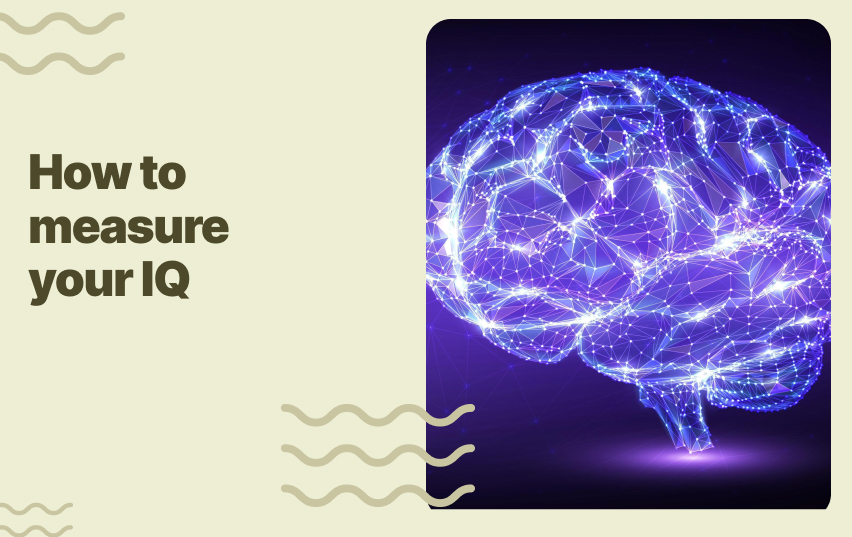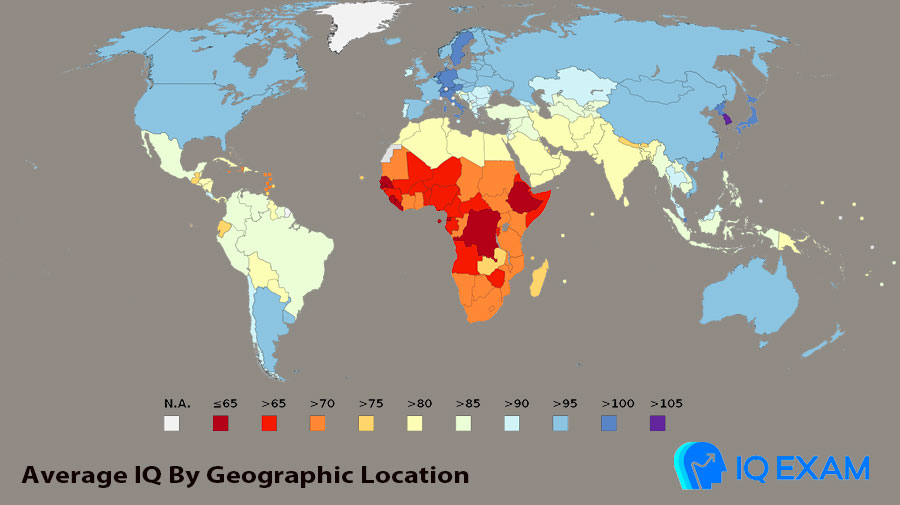
What is IQ?
Many people are familiar with the term IQ, which is related to the level of a person’s intelligence, but IQ is connected to more than just numbers. What does an IQ test prove? and how can an IQ test define the level of a person’s intelligence level? The intelligence quotient represents a number that shows the person’s thinking and reasoning capability compared to others in a particular age group.
Different tests can calculate IQ, and their primary goal is to define a person’s analytical capabilities in problem-solving, coherence, and interpretation. IQ stands for intelligence quotient. It is a score that tries to calculate a person’s intelligence based on how they perform in different tests, such as verbal understanding, symbolic reasoning, memory, or the speed of processing things. An IQ test calculates your chronological and mental age, depending on your test result.
How to measure an individual’s intelligence level?
To evaluate an individual’s IQ, experts should test many people with the same age range to find an average level of intelligence for every group. Researchers collect data from every age group and search for tasks that at least 70% of each group’s participants can handle at their age.
This test can provide researchers with a standard scale about what they can consider as mental age. Individuals’ mental age is directly connected with their intelligence level, which should be compared with other participants in the same age group. In the next step, researchers consider the participant’s chronological age, represented by a numeric value showing how many years they lived.
For measuring a person’s IQ level, we should divide the mental age by chronological age and then multiply the number by 100. For example, if a person has a mental age of 12, but he or she is 10 years old, then we have to divide 12 by 10 and multiply that number by 100, which reaches us an IQ score of 120.
Different Methods For Measuring IQ test
Multiple IQ tests use different criteria to measure IQ. The fourth edition of WAIS-IV (Wechsler Adult intelligence Scale) has the highest standard in calculating intelligence and the score range is as below.
- 130 and above: Very Remarkable
- 120 to 129: Remarkable
- 110 to 119: High Average
- 90 to 109: Average
- 80 to 89: Low Average
- 70 to 79: Borderline
- 69 and below: Very Low
If these scores are defined accurately, especially in children, they can identify severe learning disabilities and help teachers find the best practical teaching methods. But we shouldn’t consider IQ-test results as the end-game for children because they can be damaging.
Considering only IQ scores without paying attention to other factors can cause misjudgments, so a student with low IQ test scores may be placed in classes they don’t belong to. This can put a student years behind. We should consider that many criteria can affect a person’s IQ, such as family occupation, income, location, and even the amount of a person’s physical activity.
Therefore, never consider an IQ test alone. For better understanding, we will briefly explain other factors which we should consider for calculating a person’s IQ.
Average IQ measurement by geographic location
Every country’s teaching and learning methods, culture, and attitude can strongly affect the results of a citizen’s IQ tests. This is why IQ test results can be very different, considering the place of your residence. There are the countries with the best average IQ test results as below:
- 108: Hong Kong, Singapore, South Korea
- 105: China, Japan, Taiwan
- 101: Iceland, Macau, Switzerland
- 100: Austria, Liechtenstein, Luxembourg, Netherlands, Norway, United Kingdom
- 99: Belgium, Canada, Croatia, Estonia, Finland, Germany, New Zealand, Sweden

Another criteria that can affect IQ scores is the rate of contagious disease. Many scientists believe that infections force the body to send more energy to the immune system, which can destroy brain growth. Following this, a study in 2011 showed USA states with lower average IQ scores faced more infectious diseases, and this conclusion was based on their wealth and educational experiences.
Average IQ by occupation
You need a set of different skills to get into the path of various occupations. Therefore, the average IQ score can be different between multiple careers. On the other hand, we need more research in this area. One study took place in 1967 which used the WAIS to compare different IQ scores among male scientists at the University of Cambridge:
- Social scientists: 121.8
- Agricultural scientists: 121.6
- Mathematicians, biochemists, and chemists: 130
- Biologists: 126.1
- Medical practitioners: 127
- Physicists: 127.7
In addition, researchers believe that IQ scores are not related to career success. We should remember that this research was done more than 50 years ago, and the results can be different today. On the other hand, other specialists believe IQ score is related to job satisfaction, especially in complicated jobs, and IQ score cannot predict a person’s success in their occupation.
Conclusion
IQ scores differ from one person to another, and the result depends on many criteria. An IQ test can calculate your conceptual reasoning and analytical thinking skills, but it doesn’t confine the totality of your mental capabilities.
As Matzel Says, “Opportunity, motivation, and the level of access to resources are much more important than the numbers which represent the intelligence level. Discover your skills, find out what you are good at, dedicate yourself to improving, do your best, and if you do so, be certain no one ever cares what your IQ score is.“
